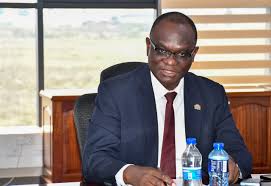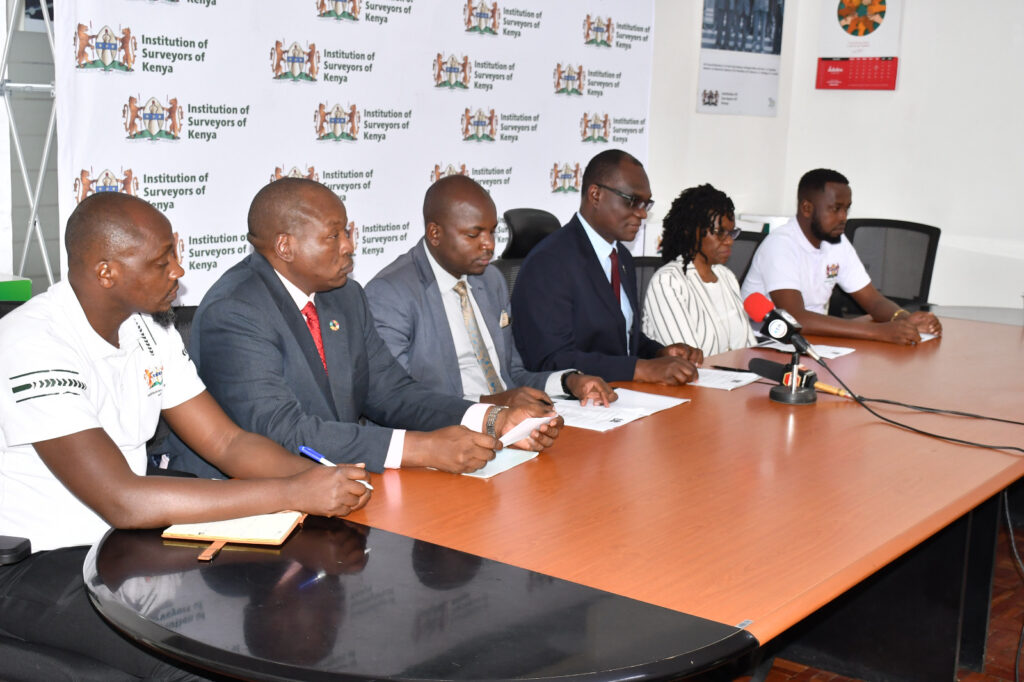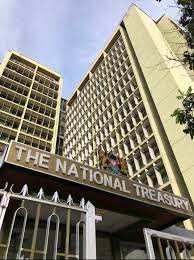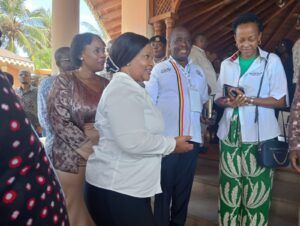ISK Rejects Treasury’s Draft Asset Valuation Policy, Calls for Total Overhaul

ISK President Eric Nyadimo. (Photo/ Courtesy)
By Mwakwaya Raymond
Email, thecoastnewspaper@gmail.com
The Institution of Surveyors of Kenya (ISK) has strongly condemned the Draft Government Assets Valuation Policy Framework, describing it as fundamentally flawed and developed without consultation with key regulatory stakeholders. The draft, promoted by the National Treasury, was recently published in a newspaper notice dated August 26, 2025, announcing public participation forums across the country beginning September 1.
While acknowledging that the policy aims to offer a framework for identifying, classifying, valuing, and reporting public assets across all levels of government, ISK has raised serious concerns about its legality, technical grounding, and implications for public asset management.
In a detailed statement released by ISK President Eric Nyadimo, the institution warned that the draft policy undermines the integrity of the valuation profession and disregards existing national and international standards.
According to ISK, the policy as currently drafted violates the Valuers Act (Cap 532), the legal framework that governs the valuation profession in Kenya.
It also neglects to incorporate critical guidelines provided by the Kenya Valuation Standards (2021) and the latest International Valuation Standards (2025), all of which ensure that asset valuation in the country is conducted with professionalism, transparency, and accountability.
ISK noted with alarm that neither the Institution nor the Valuers Registration Board (VRB)—the two legally mandated authorities overseeing valuation in Kenya—were involved in drafting the policy. “It is regrettable that ISK and the VRB, institutions critical to valuation policy development in Kenya, were completely sidelined,” said Mr. Nyadimo.
The institution further warned that the draft policy dangerously conflates valuation with related but distinct processes such as asset inventorying, equipment condition assessment, and management estimates. According to ISK, this confusion could lead to unqualified individuals performing valuation tasks, which may result in serious risks to public resources, including misrepresentation, under- or over-valuation, and fraudulent transactions.

Valuation, ISK emphasized, is a professional opinion of value expressed only by trained, registered, and licensed valuers. It is not merely a data-gathering exercise. Valuers undergo rigorous academic training, supervised internships, and professional examinations before being registered by the Valuers Registration Board. In their work, they draw on technical inputs from engineers, quantity surveyors, accountants, and other specialists, but it is the valuer who applies market principles to determine asset value.
The policy’s attempt to merge asset valuation with asset procurement and management functions also came under criticism. ISK pointed out that such consolidation erodes the necessary checks and balances that have historically prevented asset mismanagement. Separating the processes of financing, procurement, management, and valuation, the institution argued, is best practice internationally and should not be abandoned.
Contrary to the draft policy’s assertion that there is a gap in the regulation of valuation practice, ISK stated that valuers in Kenya are already trained to handle all asset classes, including specialized assets. What is lacking, they argue, is not a new board or framework, but better coordination within the existing legal and professional landscape.
Of particular concern to ISK is the proposal to create a new board to regulate public asset valuation—a move the institution said would duplicate and potentially conflict with the mandate of the existing Valuers Registration Board. The institution warned that introducing overlapping regulatory bodies would lead to confusion, legal disputes, and weakened oversight.
Despite its strong opposition, ISK expressed willingness to support the formulation of a more coherent policy, provided the process is inclusive and aligned with existing laws.
The institution proposed that the current draft be completely overhauled and that a new, representative stakeholder group be convened.
ISK recommended including the Ministry of Lands, Public Works, Housing and Urban Development; the National Land Commission; institutions of higher learning; and other relevant professional bodies in the process.

Eric Nyadimo concluded by stating that ISK is currently reviewing the Kenya Valuation Standards to incorporate emerging trends, reaffirming the institution’s commitment to improving professional standards and safeguarding public assets. He stressed that reform should not come at the expense of professionalism and legality.
“We are not opposed to reform,” said Nyadimo. “We are opposed to poorly informed, legally inconsistent, and professionally dangerous policies. Kenya deserves better.”





